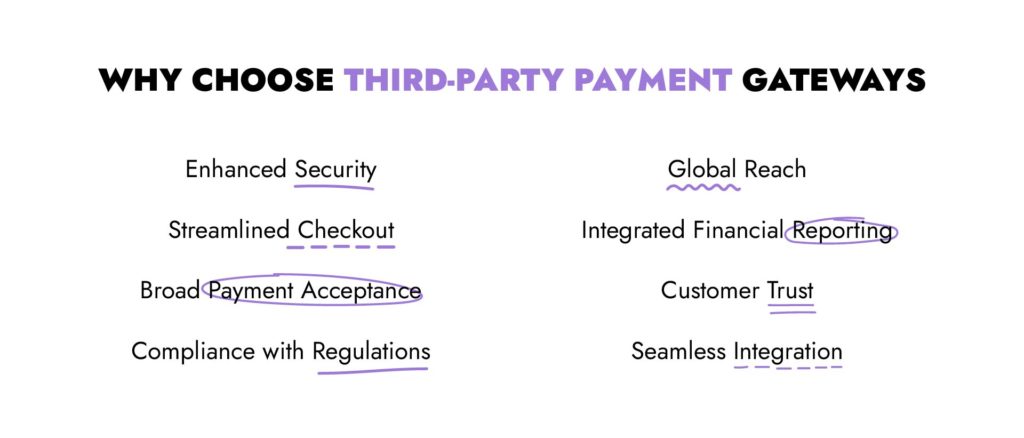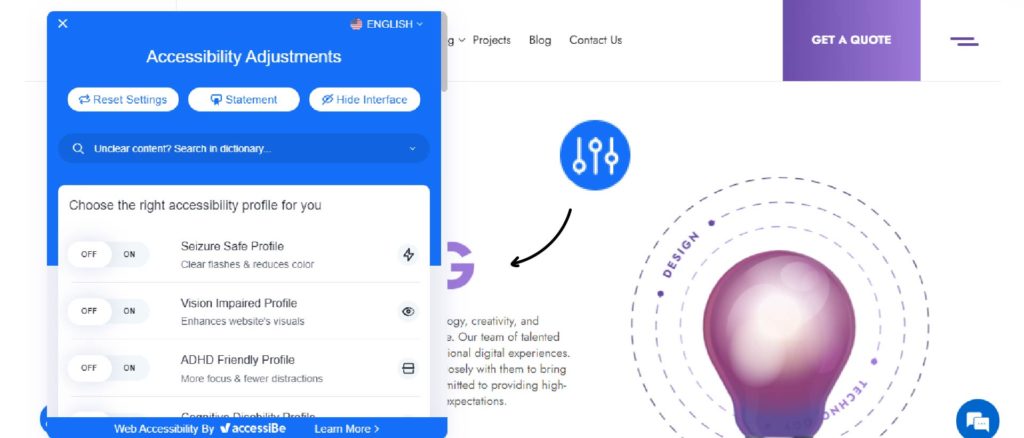Understanding the nuances of eCommerce design in Toronto is crucial as businesses increasingly rely on digital channels to connect with consumers. Toronto stands at the forefront of Canada’s digital economy, boasting a robust digital ecosystem characterized by its diverse population, tech-savvy consumers, and vibrant business community.
Over 27 million people in Canada used eCommerce in 2022, which was 75% of the total population. This percentage is expected to rise to 77.6% by 2025, showing a clear trend: Canadians are becoming more and more interested in shopping online.
To effectively navigate Toronto’s eCommerce landscape, businesses must analyze market trends, consumer behaviour, and local competitors to tailor design strategies that resonate with the city’s dynamic market.
Key Features of Successful Ecommerce Sites
First things first, regardless of the city there are a few essential elements that lay the groundwork for the success of any eCommerce website. Incorporating these key components of effective eCommerce website design will guarantee a competitive edge in today’s competitive marketplace.
- User-Friendly Design: A clear, intuitive interface that makes navigation easy for all users, enhancing the overall shopping experience.
- Responsive Design: Websites optimized for mobile devices, ensuring a seamless shopping experience across all platforms and devices.
- High-Quality Product Displays: Detailed product pages with high-resolution images and comprehensive descriptions that help consumers make informed decisions.
- Fast Load Times: Quick-loading pages that reduce bounce rates and keep customers engaged, are crucial for retaining visitor interest.
- Secure Payment Options: Integration of multiple secure payment methods, providing flexibility and building trust with consumers.
- Easy Checkout Process: A streamlined checkout that minimizes steps and simplifies the transaction process, reducing cart abandonment rates.
- Search Functionality: Effective search tools and filters that allow customers to easily find products, enhancing usability and satisfaction.
- Personalization: Dynamic content and personalized recommendations based on user behaviour and preferences, offering a tailored shopping experience.
Expert Insights: Years of Experience Shared
- Choosing Between Custom and Template Web Design
In addition to these foundational elements, several other critical factors require careful consideration when developing an eCommerce website. Among these considerations is the choice between custom and template web design. While custom design offers tailor-made solutions aligned with specific business needs and branding, template design provides a cost-effective and time-efficient option, ideal for startups and businesses with limited resources.
Digilite’s director of technology, Ara emphasizes the need to clearly understand the client’s objectives to make the appropriate choice between the two options. He illustrates this point with an example:

- Selecting the Ideal eCommerce Platform
Choosing the right platform is another crucial step as it serves as the backbone of the eCommerce website, managing transactions, inventory, and ensuring smooth user experiences. Whether it’s Shopify, WooCommerce, Magento, or custom-built solutions, selecting the most suitable platform is vital for long-term scalability and functionality.
Drawing from Digilite’s expertise with over 50 successful eCommerce website designs, we recommend Shopify for its quick setup, clean interface, and user-friendly experience. In many cases, eCommerce website design and development need to be executed within short timeframes, and Shopify enables us to do so efficiently.
- Finding the Right Web Design Partner
Equally important is partnering with the right agency. A reputable web design agency brings together expertise from various fields, ensuring comprehensive support in website development. The integrated eCommerce services ensure that all aspects are harmoniously aligned to enhance the effectiveness and success of the eCommerce website.
- Picking Secure Payment Methods
When it comes to payment methods for Toronto-based customers, security and convenience are significant. That’s why we recommend using Stripe or other highly credible third-party payment gateways such as PayPal, Square, and Shopify Payments.

At Digilite, our eCommerce website design best practices indicate that Stripe is quite a good option to choose. It ensures that any personal and sensitive information is not stored and prevents data breach risks. Having payment data encrypted, Stripe complies with Canadian laws and regulations, which ensures peace of mind not only for the business but also for the customers.
Want to start selling online?
Reach out to us to discuss building and improving your online store.
Ecommerce Website Localization Strategies
Ecommerce website localization strategies involve adapting online platforms to match specific target markets by tailoring content, language, design, and user experience to meet the cultural, linguistic, and regulatory expectations of local audiences. These strategies aim to enhance user engagement, build trust, and drive conversions in diverse global markets.
Legal Regulations and Compliance
- Businesses must comply with Canadian Consumer Protection laws, which cover a wide range of aspects including product safety, accurate advertising, and clear information about pricing. The Competition Act and Consumer Packaging and Labelling Act are examples of such laws that ensure businesses fairly conduct themselves, providing all necessary information to consumers.
- The Accessibility for Ontarians with Disabilities Act (AODA) requires websites to adhere to Web Content Accessibility Guidelines (WCAG) 2.0 Level AA standards. This includes making websites navigable for people using screen readers, ensuring sufficient contrast ratios for text, and providing alternative text for images.
For example, on Digilite’s website, you can notice a small icon in the left corner. By pressing this icon, users can make accessibility adjustments, including changing contrast ratios, enlarging text, and enabling screen reader functionalities. This feature demonstrates Digilite’s commitment to AODA compliance, ensuring that all users, regardless of their abilities, can navigate and interact with the site effectively.

- Personal Information Protection and Electronic Documents Act (PIPEDA) governs the collection, use, and disclosure of personal information in commercial activities. eCommerce sites must protect customers’ personal data and ensure privacy by obtaining consent for its collection, use, and disclosure, and providing access to customer information upon request.
- Canada’s Anti-Spam Legislation (CASL) regulates commercial electronic messages. eCommerce businesses must secure consent before sending marketing emails, identify themselves clearly within messages, and offer an easy unsubscribe option to recipients.
Embracing Multiculturalism
In a diverse city like Toronto, embracing multiculturalism in eCommerce design is crucial. With multi-language support and cultural customization, businesses can broaden their audience and enhance accessibility. Here are some tips to leverage diversity effectively in your eCommerce design:
- Multi-Language Support: As Canada’s second official language, offering French language options caters to a significant Francophone population. An eCommerce site could feature language toggle options at the top of every page, allowing users to switch between English and French effortlessly.
With a large Chinese-speaking community in Toronto, integrating Mandarin and Cantonese language options can attract and retain customers who prefer shopping in these languages. Including culturally specific promotions around traditional Chinese holidays, such as Chinese New Year, can further personalize the shopping experience.
- Cultural Customization: Tailoring content, promotions, and products to reflect the diverse cultural backgrounds of your audience is equally important. Recognize and celebrate significant cultural events like Diwali, Eid, and Lunar New Year with special promotions or featured products.
Create content that resonates with different cultural groups. This could include blog posts about traditional cooking recipes from various cultures, or guides on celebrating international festivals in Toronto. Such content not only enriches the user experience but also boosts engagement and loyalty.
Local Partnerships
In 2020, research revealed that Canadian consumers, compared to other countries, had the highest sentiment to support local businesses (68%), online or offline, to strengthen their local economies. This trend emphasizes the significance of local partnerships, enabling businesses to align with consumer values, cultivate authentic connections, and enrich vibrant communities.
By fostering local support businesses thrive within their communities and signal a commitment to mutual prosperity and societal well-being. Integrating these principles into web design involves incorporating features such as local business directories, collaborative events, or spotlight sections to showcase the diversity and vibrancy of the community. This amplifies the platform’s connection to the community, enhancing user engagement and fostering long-term sustainability.
Navigating the vibrant eCommerce scene in Toronto is all about making smart choices and staying connected with your community. Choosing platforms that are both flexible and secure, ensuring your site is easy for everyone to use, and making it mobile-friendly are great places to start.
Don’t forget to celebrate Toronto’s amazing diversity and keep fine-tuning your online space based on what your visitors tell you. With these tips, you’re well on your way to shining in Toronto’s online marketplace.




